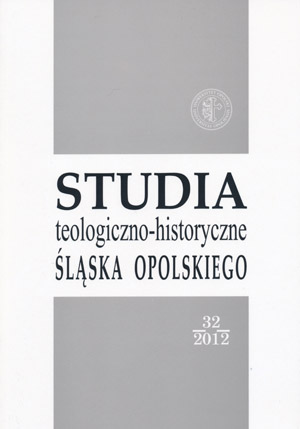Vulgarised Rahnerianism and Post-Critical Recontextualisation: Solvents of Catholic Identity in Contemporary Catechesis
Vulgarised Rahnerianism and Post-Critical Recontextualisation: Solvents of Catholic Identity in Contemporary Catechesis
Author(s): Gerard O'SheaSubject(s): Pastoral Theology
Published by: Uniwersytet Opolski
Keywords: Karl Rahner
Summary/Abstract: Undoubtedly, one might point to the usual range of difficulties facing Catholic education in our contemporary circumstances: the prevailing popular culture for promoting a worldview at odds with Christian teaching on a broad range of issues — sociological, political, economic and spiritual. Yet it is intriguing that a similar set of problems overcame Protestant educational efforts in the nineteenth century, but left Catholic efforts unaffected. This begs the question: what has changed? It would be unwise to claim that any one cause will offer an adequate solution. Nevertheless, it may be the argued that it is not only external attacks that lie at the root of the problem; it may include factors that are internal to Catholic Education itself. This paper will mount a case for this contention in three parts. The first part will demonstrate that the influence on Catholic education of what may be described as a “popularly received” version of the theology of KARL RAHNER may have laid a foundation for problems of Catholic identity schools. This general phenomenon is described by the English Dominican, AIDAN NICHOLS, as vulgarised Rahnerianism: “an attitude of mind among theologically literate, or at least religiously articulate, Catholics which owed much, certainly, to Rahner but on the way had shed much too in the way of nuance and qualification”.
Journal: Studia Teologiczno-Historyczne Śląska Opolskiego
- Issue Year: 32/2012
- Issue No: _
- Page Range: 201-228
- Page Count: 28
- Language: English

